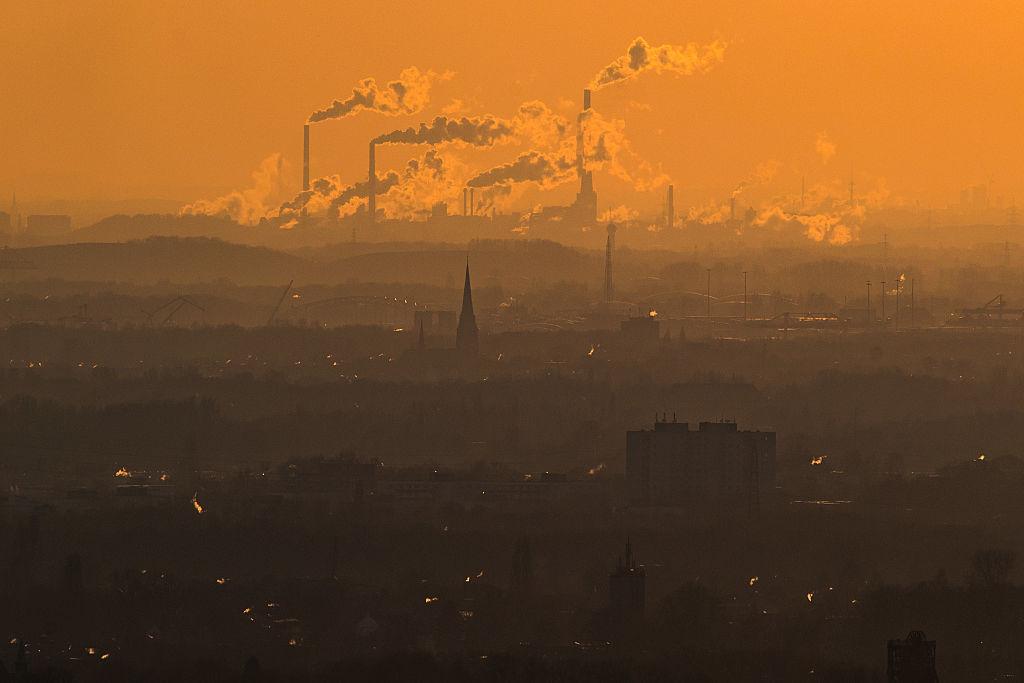
Planet A
The G7 has pledged to increase the pace of renewable energy development by collectively increasing offshore wind capacity by 150 gigawatts and solar capacity to more than a terawatt by 2030. Phasing out the use of unabated fossil fuels to achieve net zero in energy systems by 2050 was another key policy announced in the communique released after the G7’s climate, energy and environmental talks in Japan.
The G7 meeting took place a month after the Intergovernmental Panel on Climate Change warned that global temperatures were on track to rise to 3.2°C by 2100. Reaching that projected level would be catastrophic with the intergovernmental panel warning that temperature rises must be contained within a 1.5°C threshold to avoid irreversible climate change. However the G7 stopped short of endorsing a 2030 deadline for phasing out the use of coal and left the door open for continued investment in gas.
Democracy watch
On Saturday, French President Emmanuel Macron implemented a controversial pension law raising the retirement age from 62 to 64 despite three months of often violent opposition. The legislation received approval from France’s highest constitutional court after the government resorted to an extraordinary constitutional power to push through the change without a final vote in the National Assembly. This move triggered a fresh round of protests, strikes and clashes with police throughout the country leading to a dramatic fall in Macron’s approval ratings.
Macron contended on Monday that raising the retirement age is crucial to forestall projected pension deficits of €13.5bn ($14.8bn) by 2030. In an effort to ease tensions, he has undertaken that his government will bring about national reconciliation within 100 days. Negotiations are scheduled to enhance employee income, wealth sharing and working conditions, particularly for older labourers. Nevertheless, opponents have dismissed this latest attempt to ease the situation and are calling for mass Labour Day protests on 1 May.
Information operations
Taiwan’s defence ministry has warned of a proliferation of disinformation in the wake of China’s recent military exercises. These manoeuvres, spanning three days, were in retaliation for President Tsai Ing-wen’s meeting with House Speaker Kevin McCarthy in the US. The Mainland Affairs Council of Taiwan has expressed concern about the media amplifying the People’s Liberation Army’s message which it says is intended to instill fear in the population and contribute to social instability.
Taiwan has long been a prime target of foreign disinformation and cyber warfare, with most originating from mainland China. Last year, hundreds of such attacks were launched alongside military exercises after Nancy Pelosi’s visit. While no cyber attacks have been reported this time, the ministry is investigating the source of the false claims which it suspects are part of a cognitive warfare strategy intended to undermine morale.
Follow the money
Hungary has withdrawn from the Russian-controlled International Investment Bank (IIB), with Prime Minister Viktor Orban stating that US sanctions have ‘ruined’ the institution. Sanctions were imposed last week against the Budapest-based bank and three of its top officials in response to its alleged role as a Russian intelligence hub in Europe. According to the US Department of the Treasury, the bank serves as a door for ‘the Kremlin’s malign influence activities in Central Europe and the Western Balkans’.
The sanctions on IIB are part of the G7’s commitment to impose severe consequences on countries which support Russia’s war in Ukraine. The Czech Republic, Bulgaria, Slovakia and Romania all cut ties with the bank after the Russian invasion. Despite Orban’s announcement that Hungary will comply with sanctions against Russia including the IIB sanctions, the NATO member’s close relationship with Russia continues to be a point of friction in Hungary’s relationship with the US.
Terror byte
Burkina Faso’s military junta has declared a ‘general mobilisation’ to combat attacks blamed on jihadists affiliated with al-Qaeda and the Islamic State terror group. The mobilisation is the latest part of the government’s efforts to stop the insurgency that spilled over from neighbouring Mali in 2015.
It followed the reported murders of at least 44 civilians by terrorists near the Niger border in one of the deadliest attacks since the appointment of Burkina Faso’s interim leader, Ibrahim Traoré, last September. From 2015, violence associated with the insurgency has left more than 10,000 people dead and displaced two million more. The government earlier announced its intention to recruit an additional 5,000 soldiers to fight the insurgency.